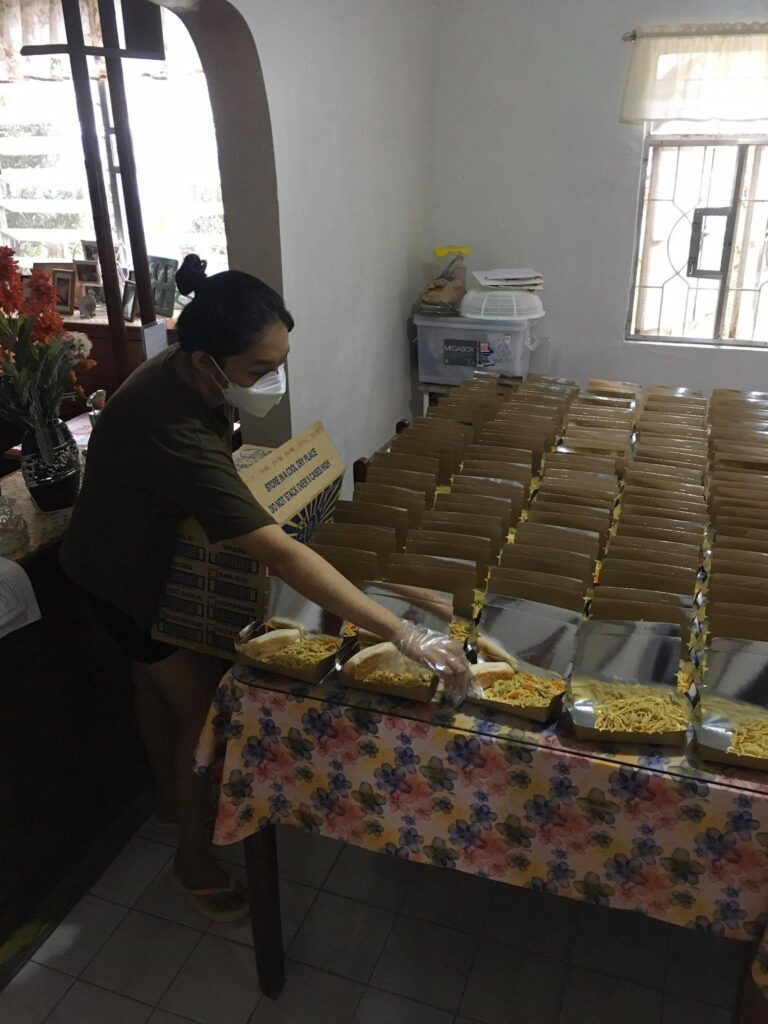
She notes rise in mental health problem. Her advice: “Even a simple ‘kamusta’ meant a lot”
The pandemic has disrupted the daily routine of every Filipino. Students, in particular, had to deal with the early suspension of the semester and scramble to continue academic work at home.
We are now five months into this global pandemic and schools like Far Eastern University (FEU) have been extremely active in initiating programs to help the community during this crisis. Further amplifying these efforts are initiatives made by various students, athletes, and community members, among them student leader Mariz Domingo.
Domingo, an FEU Institute of Tourism and Hotel Management (ITHM) student, shares her experience dealing with the drastic changes the pandemic brought and what it taught her. She paints a picture of hope as she inspires and helps her fellow students deal with this life-changing crisis. She advises them to look ahead as the incoming school year, in this new normal, approaches.

- Before the nationwide quarantine, what was your routine like as a student leader?
Mariz: My student-leader life before was confined to the classroom or to where our student council office is located. Weeks before the quarantine took place, we were planning ITHM Week – an annual celebration of ITHM. We were brainstorming, sharing project proposals, planning events, and the like. Once it was announced that classes would be canceled, everything became a blur. Because of the situation, the marketing and creatives teams realized that we needed to be more active than ever on social media. We could communicate with our co-students only virtually, so we had to come up with ideas on how to cope and communicate with them online.
- Can you tell us about the programs the student body initiated to help other students during the crisis?
Mariz: The ITHM Student Council initiated the ITHM SHOPPE or what we call the Sellers Hub for Online Products, Promotions, and Entrepreneurship. This project is meant to help promote and advertise our co-students’ and the faculty members’ online shops. These were created to help them increase their followers and to attract potential buyers not only in the ITHM community network but also in FEU at large. We wanted them to earn extra income to fund their daily needs.
- Is there anything you started to help other people during the crisis?
Mariz: I also started a donation drive when I got back to my home province in Ilocos Norte. My goal was to help people from my city, especially the indigent families and later the frontliners. I saw how wide my connections were and I used them so that I could get more donations and help more people. FEU and the Student Development team helped promote my cause. Although the donation drive was cut short because of limited resources, it was still fulfilling to see people appreciative of the things we did.
- When you were helping your classmates and other people are there any issues that you noticed in particular?
Mariz: I noticed a rise in mental health issues among my classmates, especially those who were not able to go home immediately when the lockdown started in Manila. They were thinking about the current situation and at the same time worrying about how their families were doing.
I think constant communication is one of the best things one can do to help a friend cope with these kinds of problems. Whether it be your family, your friends, your loved ones – I am sure that even a simple “kamusta” meant a lot. If you are nearby, you can visit (but remember to observe social distancing) and maybe give them some food you baked, which I did.
- The Pandemic was a massive disruption to our lives. What does your new routine look like in this new normal?
Mariz: The biggest challenge I had to face this quarantine was to find something productive to do. Before this pandemic started, I always had full schedules on weekdays and even during weekends. I realized that the real challenge these days is not just finding a way to be productive but finding value in what you do.

Most of my days now follow the cycle of wake up-eat-watch Netflix -take a bath-eat-binge watch-eat-sleep-repeat. Sometimes, my days were exciting especially when I could go on errands and buy groceries. But other than that, the things I do now are far from the things I usually did and in school and in Manila.
- People everywhere are spending more time at home and they have been using this to take a hobby or two. Have you any hobbies during quarantine?
Mariz: During the pandemic, I learned how to cook better and I felt like a chef after making a buffet for Mother’s Day and for birthdays. Aside from that, I learned better ways to keep a healthy and sound body through proper diet and exercise. But most importantly, I learned to cleanse my mind, my social media, the messages in my inbox, and my body too.
- As we are looking forward and getting ready for the first semester under the new normal, have you done anything to prepare for your online classes?
Mariz: I have been preparing for the shift to online classes since the latter half of the 2nd semester. I made sure I had a phone and a laptop to use for the virtual lessons. Most importantly, I made sure that I had strong internet so that I could join in and keep track of the requirements in school. But I wish every FEU student could have these gadgets too and the internet connection to continue living their dreams through studying.
The pandemic is an unprecedented trial for all of us. Fortunately, future leaders like Mariz have learned to see this experience in perspective and find value in all the things she had to do.
As a final piece of advice from Mariz, she says that we should “Give value to everything in your life, from the work you do to the fleeting moments you have with friends and family because you will never know when you will be able to do these things again.”





